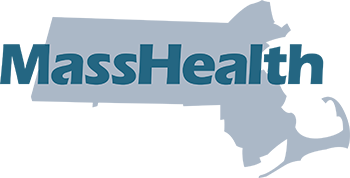Health Connector member survey finds 88 percent have used new coverage,
one in five have used preventative services previously deferred
August 28, 2024 – A new report published today by the Health Connector shows that the ConnectorCare pilot expansion enabled access to lower-cost health insurance to over 51,000 Massachusetts residents and many new participants benefit from the program’s financial protections.
The pilot expansion, part of the Fiscal Year 2024 state budget, is available to residents for Calendar Years 2024 and 2025. The expansion lifted income eligibility limits to the program from 300 percent to 500 percent of the federal poverty level – from $43,740 to $72,900 for an individual, and from $90,000 to $150,000 for a family of four.
The report details the outcomes of the pilot expansion, including an increase in member cost savings – with some new ConnectorCare members saving $150 or more per month on their premiums – and the quick usage of the coverage by members in the pilot population, with 88 percent of survey respondents saying they or a family member had used their new coverage. One in five had used preventative services that had been deferred before entering ConnectorCare.
“I was proud to sign the ConnectorCare pilot expansion into law, and I’m thrilled to see that it has expanded access to lower-cost health insurance for tens of thousands of Massachusetts residents,” said Governor Maura Healey. “We’re grateful to the Health Connector team for their hard work to make this pilot a success and to the Legislature for their partnership to make this possible.”
“We know how important it is for everyone in Massachusetts to be able to get health care services they both need and can afford,” said Secretary of Health and Human Services Kate Walsh. “I am glad the early results of this expansion shows that even more people can access health care at a more affordable price.”
“This pilot program is doing exactly what it was designed to do, which is deliver health insurance that is truly affordable and useable to Massachusetts residents who previously may have found coverage and services financially out of reach,” said Audrey Morse Gasteier, the Executive Director of the Massachusetts Health Connector. “Thank you to the Healey-Driscoll Administration and the Legislature for creating this two-year pilot program. We look forward to continuing to deliver access to affordable care to everyone in Massachusetts who needs it.”
ConnectorCare uses state and federal subsidies to make commercial health plans cost less for qualifying residents. Along with monthly premium support, the program includes low co-pays and eliminates deductibles. ConnectorCare also includes access to prescriptions at no cost to members for medication for chronic illnesses such as diabetes, asthma, and hypertension, which advances health equity for residents served by the program.
The report conveys geographic and demographic details of the expansion pilot population, and the survey fielded in May and June shed light on members’ early use of their new coverage.
“Before this year’s plan rolled out, I was struggling with the decision to end my mental health treatment due to the cost,” said one member responding to the survey. “I was able to continue treatment this year, which has helped immensely.”
The expansion has boosted the Health Connector’s membership this year. There are 271,000 people in ConnectorCare in August, part of 324,000 people in individual and family health coverage available through Health Connector this month. Both numbers are all-time highs for the program and the agency.
About the Massachusetts Health Connector
The Massachusetts Health Connector is the Commonwealth’s health insurance Marketplace, and currently serves 365,000 individuals and small-employer members with health and dental insurance. Massachusetts residents can use the Marketplace to enroll in coverage, and residents who do not have health insurance from an employer or other entity may qualify for subsidies. Through the ConnectorCare program, income-qualifying residents can access coverage that includes low-cost premiums and co-pays, and no deductibles.
###









